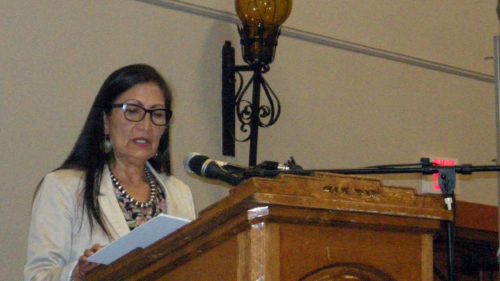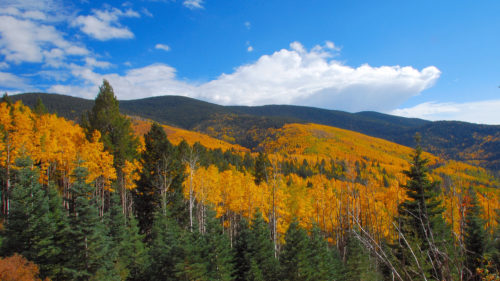ALBUQUERQUE — The New Mexico Wildlife Federation is joining with the National Wildlife Federation and all of its affiliates around the West in urging congressional leaders to revoke the recent appointment of anti-public lands activist William Perry Pendley as acting head of the U.S. Bureau of Land Management.
“Our public lands are a vital and indispensable part of our national heritage,” said Jesse Deubel, executive director of the New Mexico Wildlife Federation. “We can’t stand by and watch the appointment of a man like Pendley to a position of public trust overseeing millions of acres of our public lands when he’s devoted his career to trying to sell them off.”
Interior Secretary David Bernhardt on July 29 appointed Pendley, former director of the Mountain States Legal Foundation, as acting head of the BLM. The following is a release from the National Wildlife Federation and its affiliates regarding Pendley’s appointment:
WASHINGTON, D.C. — The National Wildlife Federation and all of its Western affiliates urged congressional leaders to demand the revocation of anti-public lands activist William Perry Pendley’s appointment as acting head of the U.S. Bureau of Land Management. The conservation organizations, which represent millions of members, cited in a letter Pendley’s long record of support for the sale and transfer of public lands as well as the lack of hearings on his appointment or recently announced plans to relocate the BLM’s headquarters.
“Put simply, he believes public lands should not be in public hands. … This antipathy for public lands and outward hostility towards public servants who manage them must not be a belief held by someone in charge of the agency,” the conservation organizations wrote in the letter. “Further, the goal of selling off our federal lands is fundamentally in opposition to the bureau’s statutory responsibilities, its reason for being, its values, and its mission.”
The letter, addressed to the top Republicans and Democrats on Natural Resources and Interior Appropriations subcommittees urges action on three fronts:
- Demand that the administration revoke Pendley’s appointment.
- Place a freeze on any BLM spending that would enable implementation of BLM’s westward relocation until a BLM director is nominated, testifies before Congress on his or her beliefs about public lands, and is confirmed.
- Hold oversight hearings on BLM proposed restructuring to determine whether such a move is in the national interest and will protect public lands for future generations to come.
Pendley has served for the last 30 years as president of the Mountain States Legal Foundation, an activist group that routinely (and unsuccessfully) sues the federal government to curtail agency authority and public use of public land. Last week, Interior Secretary David Bernhardt issued an order making Pendley the acting head of the BLM — despite the position requiring U.S. Senate confirmation.
“Our public lands put food on our tables, support wildlife habitat, give us a place to recreate and find solace, and provide natural resources that support jobs in our communities. These lands that are owned by all of us are one of America’s finest ideas and deserve protection and wise stewardship, not wholesale attack through mismanagement and selloff,” the letter concludes.
The letter’s signatories are:
- Montana Wildlife Federation
- Arizona Wildlife Federation
- The Association of Northwest Steelheaders (Oregon)
- Colorado Wildlife Federation
- Conservation Northwest (Washington)
- Idaho Wildlife Federation
- New Mexico Wildlife Federation
- Nevada Wildlife Federation
- North Dakota Wildlife Federation
- Planning and Conservation League (California)
- The Southeast Alaska Conservation Council
- South Dakota Wildlife Federation
- Wyoming Wildlife Federation
- National Wildlife Federation
The National Wildlife Federation is America’s largest and most trusted conservation organization. Its 52 affiliates lead critical wildlife conservation efforts in their states and territories and pass policy resolutions each year that guide the National Wildlife Federation’s work.



